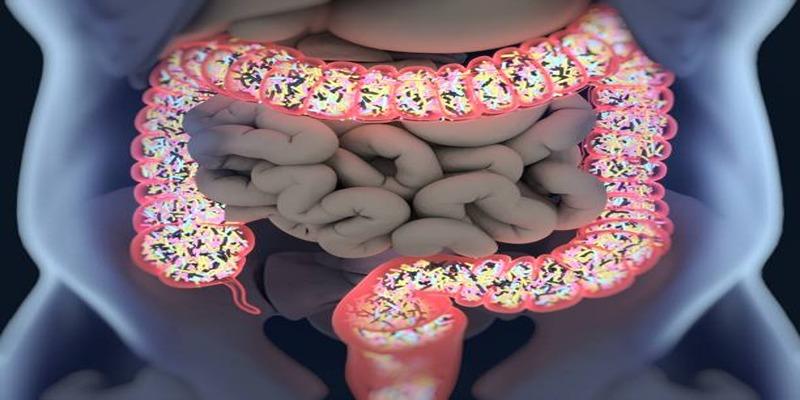How Gut Microbes Influence Your Heart's Well-Being
Approximately 500 to 1000 different types of gut microorganisms are found in the human gut, known as the gut microbiota. New studies have revealed something quite unexpected about their role in relation to heart health. But most of you would like to know how the health of your gut impacts your cardiovascular system? This article looks at the relationship between gut microbes and heart diseases. The details of how this all works and offer tips for improving the gut microbiome for the heart’s sake.
Understanding the Gut Microbiome

The gut microbiome is a population of bacteria, viruses, fungi and several other microorganisms that occupy the human gut. In fact, these microbes dwell in harmony with us, interacting with practically all the body processes. The proportion of “beneficial” and “pathogenic” microorganisms strongly condition their efficiency and productivity when inhabiting the human gut. These beneficial bacteria contribute to digestion, help manufacture important vitamins, sustain the immune system, as well as possibly control brain functions.
The Role of Gut Microbes in Cardiovascular Health
Your gut microbiome plays a surprising role in heart health, largely through the production of metabolites—chemical compounds formed during digestion. These metabolites can either benefit or harm your cardiovascular system. For example, certain gut bacteria produce a compound called trimethylamine-N-oxide (TMAO), which has been linked to heart disease. Elevated TMAO levels in the blood may increase the risk of atherosclerosis, a condition where arteries become narrowed or blocked.
Additionally, an imbalanced gut microbiome, known as dysbiosis, can trigger inflammation. Chronic inflammation is a known contributor to heart issues, such as high blood pressure and coronary artery disease. On the other hand, a healthy microbiome supports heart health by reducing inflammation and improving cholesterol levels.
The Science Linking Gut Health and the Heart
Scientific studies have intensified our understanding of the gut-heart connection. A well-known study published in the journal Nature found that people with higher levels of TMAO had a significantly greater risk of cardiovascular events like heart attacks and strokes. Researchers have also discovered that diets high in red meat and processed foods lead to an increase in gut bacteria that produce TMAO.
Another intriguing finding highlights the role of short-chain fatty acids (SCFAs), which are produced when beneficial gut bacteria digest dietary fiber. SCFAs, such as butyrate, acetate, and propionate, have been shown to lower blood pressure and reduce inflammation. This demonstrates how the types of foods you consume can shape your gut microbiome and, in turn, impact your heart health.
Lifestyle Factors That Impact Your Gut Microbiome
Below are some factors that can influence the state of your gut microbiome and, consequently, affect heart health:
Diet
Diet is one of the most powerful tools for shaping your gut microbiome. Eating a diet rich in fiber, fruits, vegetables, and whole grains promotes the growth of beneficial bacteria. Fermented foods like yogurt, kimchi, and sauerkraut introduce probiotics, which can replenish good bacteria. Conversely, a diet heavy in processed foods, sugar, and saturated fats fosters harmful bacteria, contributing to gut dysbiosis.
Physical Activity
Exercise is not just good for your heart; it also positively impacts your gut microbiome. Regular physical activity has been shown to increase microbial diversity, which is an indicator of a healthy gut. Aerobic exercises, such as jogging or swimming, are particularly effective in improving gut health and reducing inflammation, benefiting your cardiovascular system.
Stress Management
Chronic stress disrupts the gut-brain axis, the communication pathway between the gut and the brain. This disruption can lead to changes in your gut microbiome, promoting inflammation and increasing the risk of heart disease. Stress management practices like meditation, yoga, and mindfulness can help maintain a balanced gut and protect your heart.
Sleep
Poor sleep or chronic sleep deprivation can harm both gut health and heart function. Lack of rest can disrupt your gut microbiome—the beneficial bacteria in your digestive system—leading to issues like inflammation and weakened immunity. It also strains the heart, raising the risk of high blood pressure and heart disease. To stay healthy, aim for 7-9 hours of quality sleep each night. Good rest supports your gut, reduces stress on your heart, and promotes overall well-being.
Tips to Optimize Gut Microbes
Your gut microbiome plays a crucial role in your overall health, and small changes in your daily habits can make a big difference. Below are some actionable steps you can take to nurture your gut microbes and support your heart health.
- Eat More Fiber: Add foods like beans, lentils, whole grains, and vegetables to your meals. These fiber-rich options fuel good gut bacteria, improving digestion, immunity, and overall gut health.
- Limit Red Meat: Cut back on red and processed meats, which are linked to heart disease. Choose lean proteins like fish, chicken, or plant-based alternatives instead.
- Consume Fermented Foods: Include yogurt, kefir, kimchi, sauerkraut, or pickles in your diet. These are rich in probiotics, the "good" bacteria that support digestion and a healthy gut.
- Exercise Regularly: Aim for 150 minutes of moderate activity per week, like walking or cycling. Exercise improves overall health and boosts gut microbial diversity.
- Manage Stress: Chronic stress can disrupt gut bacteria. Practice relaxation techniques like yoga, meditation, or deep breathing to keep stress in check and support digestion.
- Avoid Overuse of Antibiotics: Only take antibiotics when necessary, as they can kill good bacteria. Talk to your doctor about alternatives if possible.
- Stay Hydrated: Drink plenty of water daily to aid digestion, prevent constipation, and support a healthy balance of gut bacteria. Aim for at least 8 cups a day.
- Consider Probiotics and Prebiotics: Probiotic supplements or probiotic-rich foods can replenish good bacteria. Prebiotic foods like garlic, onions, bananas, and asparagus feed probiotics and support gut health.
The Future of Gut-Heart Research

The link between the gut microbiome and heart health is a rapidly evolving field of research. Scientists are finding that the trillions of bacteria in our gut affect not just digestion but also cardiovascular health. Studies suggest gut bacteria influence inflammation, cholesterol, and harmful compounds linked to heart disease.
This research has sparked new ways to prevent and treat heart conditions, including personalized diets, probiotics to reduce harmful metabolites like TMAO, and prebiotics to support beneficial bacteria. These advancements could transform how we approach heart health and disease prevention.
Conclusion
The connection between gut health and heart health underscores the importance of maintaining a balanced microbiome. By focusing on proper nutrition, staying hydrated, and incorporating probiotics and prebiotics into your diet, you can support a healthy gut and potentially improve cardiovascular well-being. While this field of research is still developing, the evidence highlights the intricate relationship between our gut and overall health. By prioritizing these habits now, you invest in long-term wellness while benefiting from emerging scientific breakthroughs in gut-heart research.












